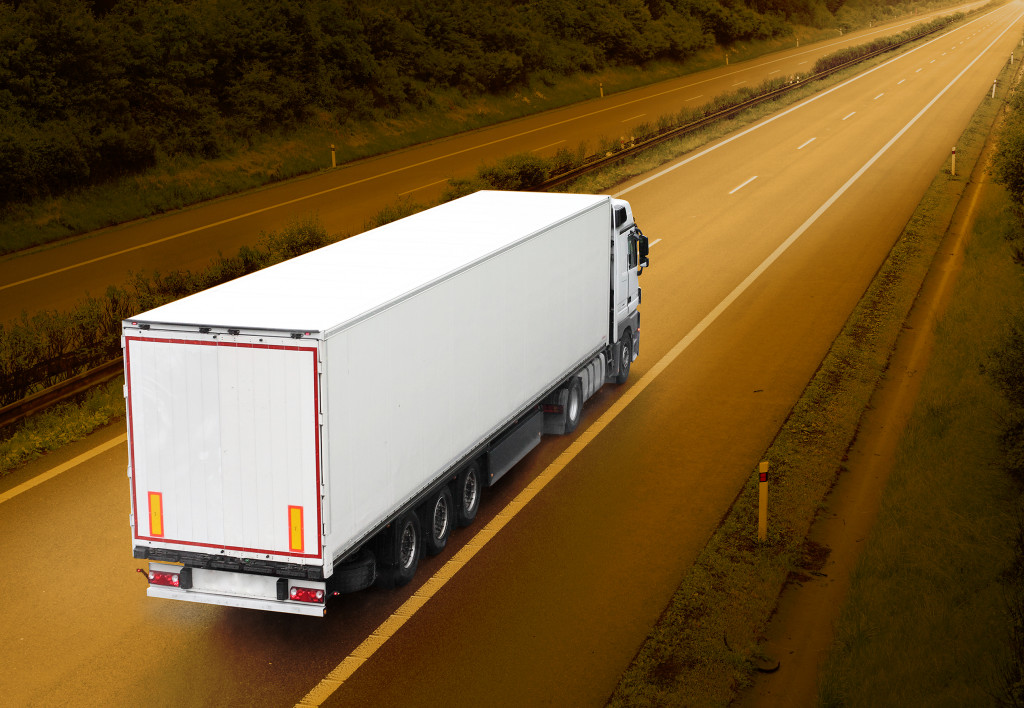The logistics industry is a vital part of the global economy, handling the movement of goods and materials worldwide. It is a complex and dynamic sector, with many different types of businesses involved in the planning and executing supply chain operations.
Logistics management is the process of coordinating these activities to ensure that goods and materials are delivered to their destination quickly and efficiently. This can involve planning and organizing transportation routes, managing inventory levels, and tracking shipments using technology tools.
The logistics industry constantly evolves as new technologies and methods are developed to improve efficiency and optimize supply chains. One sub-sector of the logistics industry utilizing physical and digital technology to increase both its effectiveness and efficiency is the trucking industry.
The Trucking Industry
The trucking industry is a fast-growing sub-sector of the logistics industry. It earned over $700 billion this year, and it continues to grow as e-commerce sales increase. Trucking is the backbone of the logistics industry, and it is responsible for transporting goods across the country.
Currently, the industry is facing many challenges. But it is utilizing technology to handle these problems efficiently.
Self-Driving Trucks
One of the significant problems affecting the trucking industry is the shortage of manpower. The American Trucking Association (ATA) estimates a shortage of over 80,000 truck drivers. This number is only going to increase as the industry continues to grow.
Many trucking companies are investing in self-driving trucks to combat this driver shortage. These autonomous vehicles use artificial intelligence and sensors to navigate roads without a human driver. While they are not yet commercially available, they are being tested by major trucking companies like Daimler, Volvo, and Tesla.
Self-driving trucks have the potential to revolutionize the trucking industry. They could significantly reduce the driver shortage by eliminating the need for drivers. And they could also improve safety by reducing accidents caused by human error.

Online Tests
Amateur drivers require a series of tests before becoming certified truck drivers. Visiting a physical testing site can be a time-consuming and expensive process.
Many trucking companies are now offering online tests to make the testing process more convenient and affordable. Drivers can take these tests from the comfort of their homes, and they are often less expensive than traditional tests. For example, you can now take a comprehensive online defensive driving course approved by the authorities. This online course teaches amateur drivers the skill they need to drive trucks and drive both logistics and passenger vehicles safely.
GPS Tracking
GPS tracking is a technology used by many industries to track the location of vehicles in real-time. Companies use this information to plan transportation routes, optimize delivery schedules, and monitor shipments.
GPS tracking is used to track trucks and their loads in the trucking industry. This helps companies plan efficient routes, avoid traffic congestion, and monitor deliveries. It also aids in stolen vehicle recovery.
E-logs
An e-log is an electronic logbook used to track a truck driver’s hours of service (HOS). This information is used to ensure that drivers are complying with HOS regulations.
E-logs are required for all drivers who operate trucks equipped with an electronic logging device (ELD). An ELD automatically records a driver’s HOS, which companies can use to generate detailed reports.
E-logs improve compliance with HOS regulations and help companies plan more efficient routes. Reducing the need for paper logs also saves time and money.
Load Boards
Load boards are online platforms that connect trucking companies with shippers. These platforms list available loads, and trucking companies can browse and choose the loads they want to haul.
Load boards help trucking companies find new customers and help shippers find reliable trucking companies. They are an essential tool for both shippers and trucking companies.
Fleet Management Systems
A fleet management system is a software application used to manage a fleet of vehicles. Many industries use this type of system, but it is beneficial for the trucking industry.
Fleet management systems help trucking companies track their vehicles, drivers, and shipments. They also aid in route planning, fuel management, and vehicle maintenance. By using a fleet management system, trucking companies can improve the efficiency of their operations.
Big Data
Big data is a term used to describe the large volume of data generated by businesses. This data can be used to improve business operations.
Big data is used to improve transportation routes, optimize deliveries, and track shipments in the trucking industry. By analyzing this data, trucking companies can make better decisions about their operations.
Technology is changing the trucking industry. These seven technologies are helping trucking companies improve their operations, from self-driving trucks to load boards. With the help of technology, the trucking industry is becoming more efficient and reliable.

